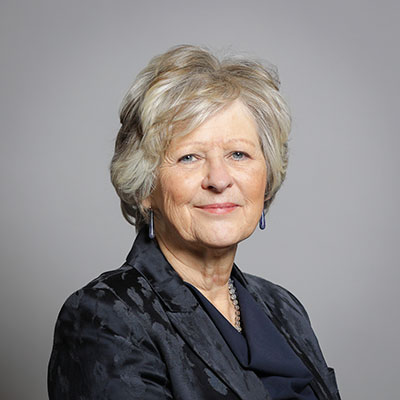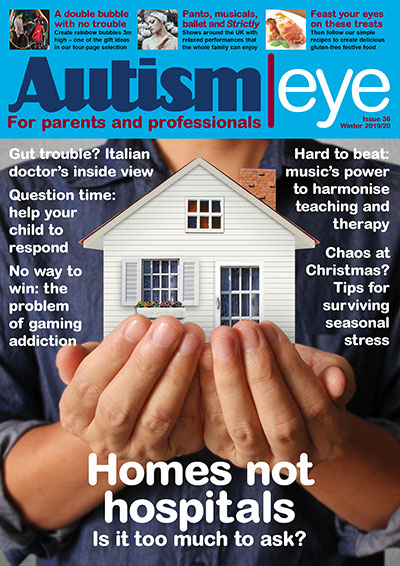Parents have given a cautious response to a £62 million UK government plan to move people with autism or learning disabilities out of mental health hospitals and into the community.
The Community Discharge Fund will operate over three years to move the inpatients into more appropriate care.
This will be into the community if possible, or into less restrictive settings.

Baroness Hollins: “Our aim is to prevent the use of seclusion and restraint in future”
The funding will support local authorities to establish community teams, and pay for accommodation and staff training.
‘Erring on the side of caution’
Phil Wills, parent to Josh, said he is “erring on the side of caution” regarding the £62 million announcement. Phil battled to have his son Josh released from a secure unit in Birmingham, 250 miles away from the family home in Cornwall.
He said: “Promises are made year in, year out, so until things are put in motion and people can see the results, I will – like all parents in this situation – remain cautious.”
Call to ring-fence the fund
Isabelle Garnett is similarly skeptical. Her experience includes waging a successful battle to have her son, Matthew released from a psychiatric intensive care unit a long way from his home.
She wants the Government to ring-fence the fund “so it doesn’t get lost as previously, and actually works to get people out”.
She added: “Until the right support is set up in the community, autistic people will continue to reach crisis point because of unmet need.”
Independent case reviews
Announcement of the new fund follows the setting up last year of independent case reviews. These have been looking at the cases of people in long-term segregation.
The reviews have made recommendations in each case to support moving people out of hospital.
Matt Hancock, the Health and Social Care Secretary, asked Baroness Hollins to oversee the independent case reviews. She is a life peer and a professor of the psychiatry of learning disability at St George’s, University of London.
Independent oversight panel

Autism Eye Magazine has for a long time covered the issue of people with autism being locked up in mental health hospitals. This is our winter 2019/20 issue, where the problem became our cover feature
Baroness Hollins has now appointed an independent oversight panel. It held its first meeting on 29 June.
The panel includes clinical, psychological and commissioning experts.
Also included are those with a ‘lived experience’, such as family members and advocates. Neither Phil Wills, nor Isabelle Garnett, have been involved.
The panel will examine findings from the reviews and make recommendations about transforming care and treatment.
It will also aim to prevent unnecessary admissions and the use of restrictive practices in future.
Being at home ‘would be the best outcome’
Hancock said: “Far too many people with learning disabilities and autistic people remain in hospital when they could receive better-suited support in their communities, closer to their homes and loved ones.”
Care Minister Helen Whately said: “Few of us would choose to remain in a hospital bed when we could be receiving better care in our own community.”
Baroness Hollins said: “Our aim is to prevent the use of seclusion and restraint in future.”
She added: “Supporting people to live well in their own homes would be the best outcome.”
‘Most’ inpatients should receive support in the community
According to Baroness Hollins, “in some circumstances people’s mental health may require a short admission for specialist assessment”. It could also require the creation of an evidence-based treatment plan.
However, she said the majority of people currently in mental health hospitals “can and should be able to receive mental health treatment and support in the community”.
Councillor Paulette Hamilton is vice chair of the Local Government Association’s Community Wellbeing Board. She said: “Councils want to do all they can to support those with learning disabilities and/or autism to return to and be supported in their local communities.”
So far, around 70 independent case reviews have been completed.
Related:
- NHS to screen all mental health deaths
- St Andrew’s kept in special measures
- Hospital placed in special measures
- Crisis keeps 2,500 in treatment units
- Parents fight assessment/treatment units
- Centre pins patients face down 600 times
- Parents forced to launch petitions
Published: 20 July 2020















